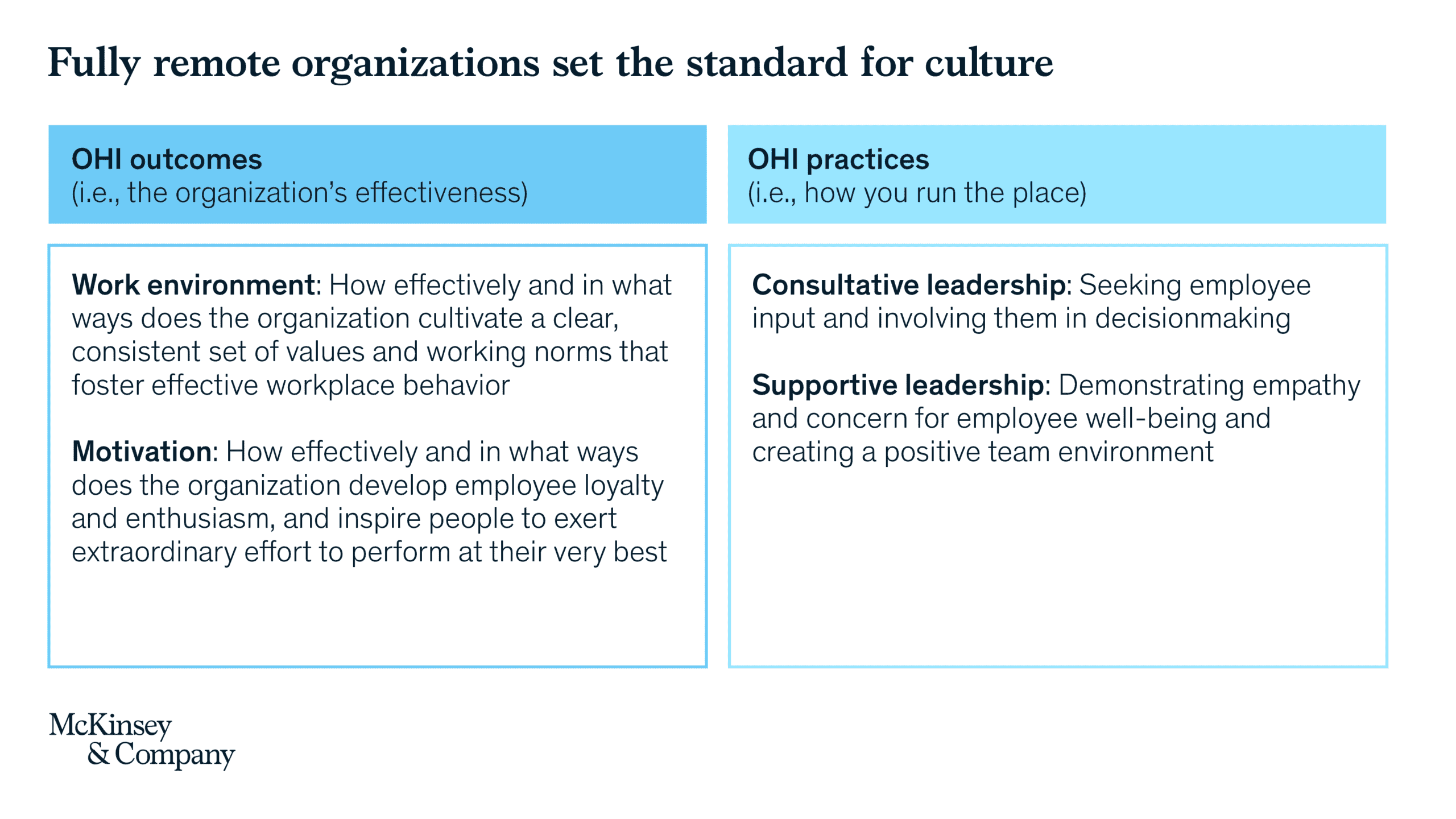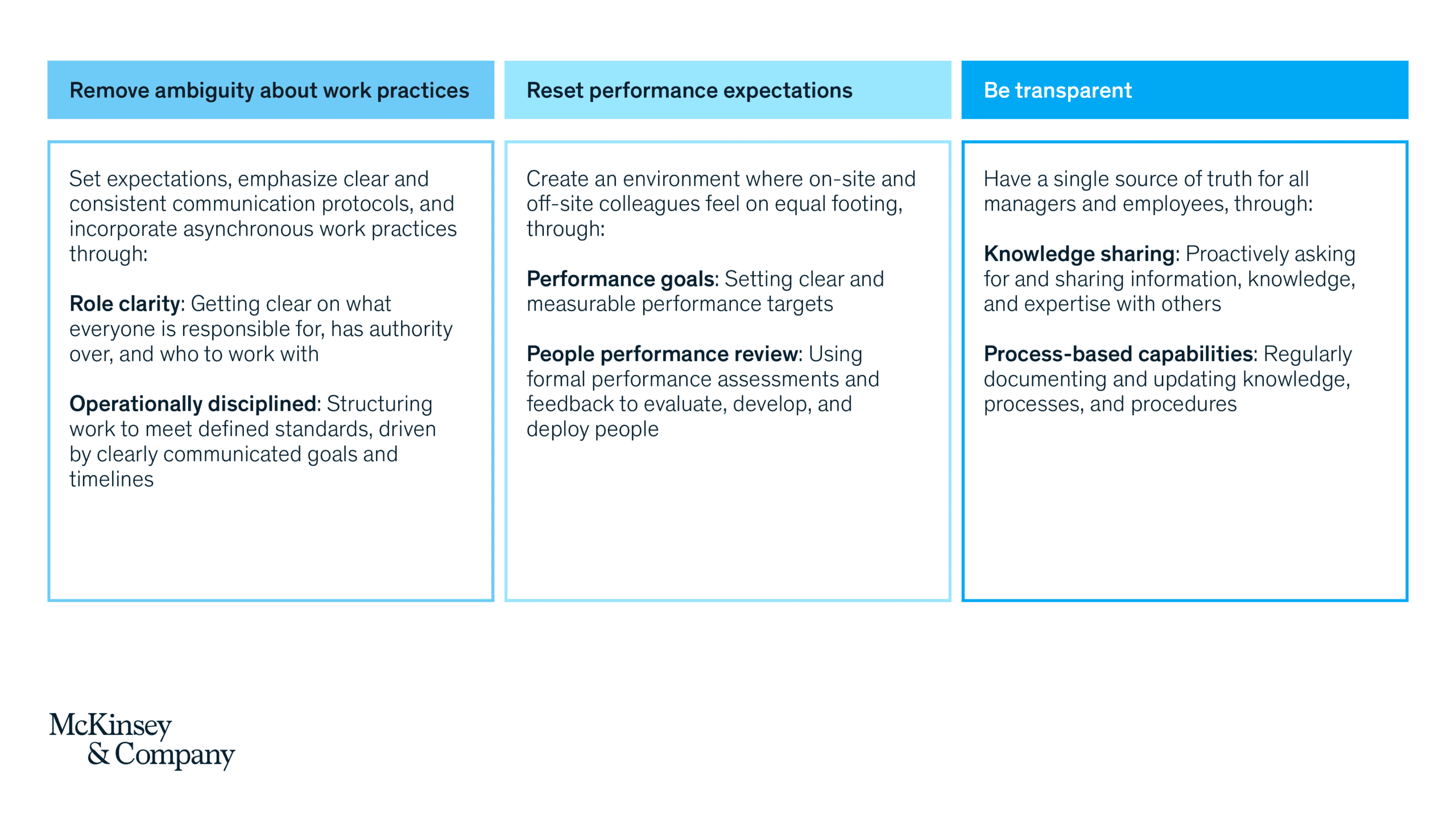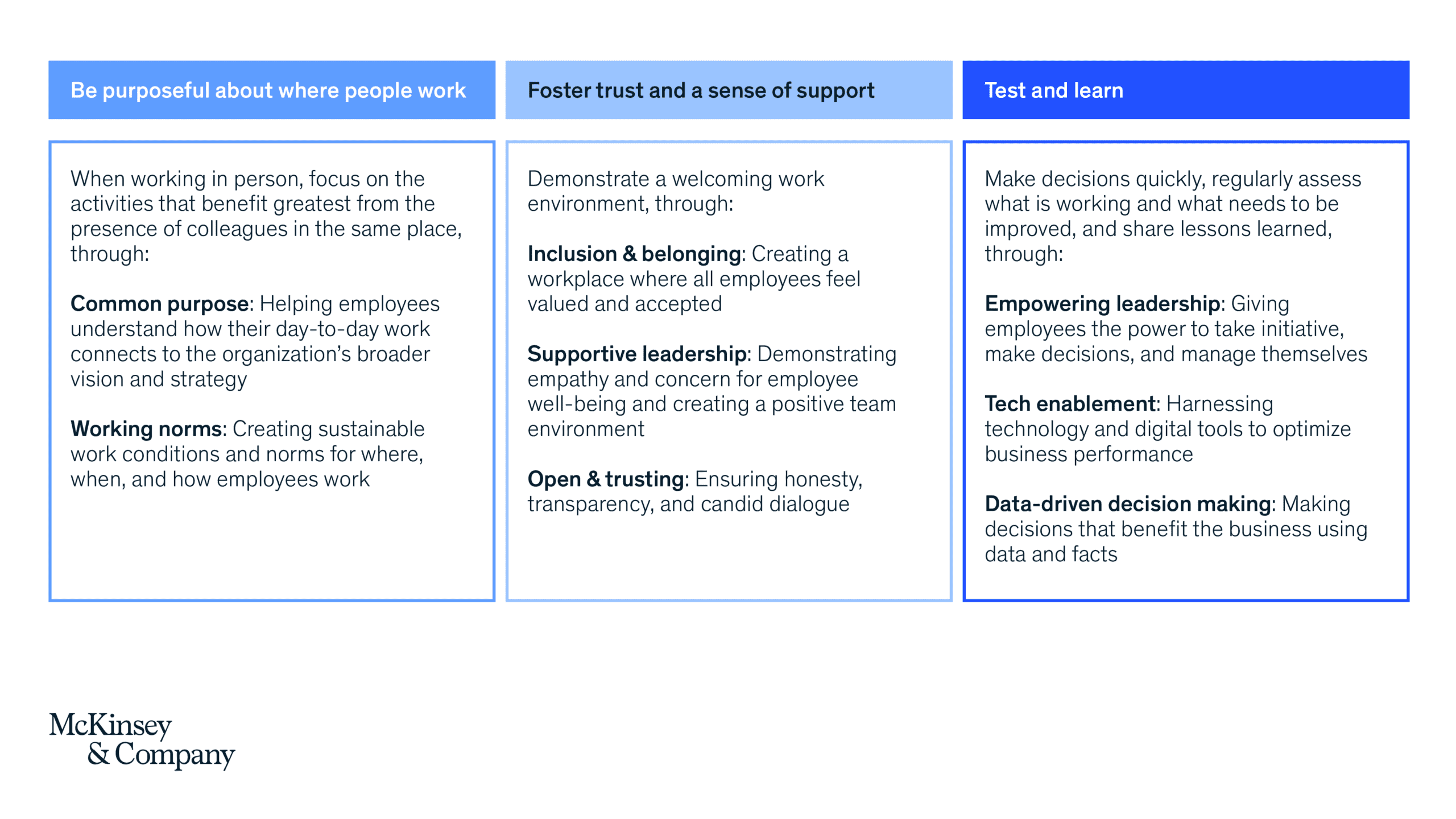Lessons learned from a fully remote organisation can help overcome the challenges of hybrid and improve organisational health.
Our work in organisational health suggests that a fully remote organisation can demonstrate a level of health that rivals, if not exceeds, the performance of most traditional companies. Organisations encouraging moderate on-site presence can learn about overcoming the inherent challenges of hybrid work from the experiences and operating models of highly distributed and remote-first companies.
To better understand and assess the impact of these operating models on organisations today, McKinsey is re-examining and refreshing an important resource: the Organisational Health Index (OHI). Based on more than two decades of expertise, our approach to measuring and improving organisational health has helped more than 2,600 clients in 100-plus countries improve and sustain performance. Although we have researched and published extensively on hybrid and remote work, we had not yet directly leveraged the OHI to connect flexible work practices (i.e., when, where, and how work gets done) to organisational health.
Since much of the debate continues in the hybrid middle—where most organisations are operating and where individual employee experiences can vary wildly—we’ve partnered with technology organisations that have been fully remote since before the COVID pandemic to help quantify the impact of their operating models. All the companies we have studied achieved top-quartile scores on the OHI, and the largest and most mature of these organisations achieved top-decile health as compared to our benchmarks. This demonstrates that it is possible to reach an exceptional level of organisational health through clear values, transparent decision making, and intentional ways of working designed to overcome limits and coordination challenges across time and place.
There are also similarities in these organisations’ cultural profiles, notably top-decile scores on OHI outcomes for Work Environment and Motivation. They share common leadership styles with top-decile performance on Consultative Leadership and Supportive Leadership OHI practices as well.

We have learned from these studies that there are six priorities for companies that aspire to sustain a flexible or highly distributed workplace alongside top organisational health, each with a set of actionable practices:
- Remove ambiguity about working practices. Set expectations, emphasize clear and consistent meeting protocols, and incorporate asynchronous work practices—enabling collaboration without real-time communication—through role clarity and operational discipline.
- Reset performance expectations. Create an environment where on-site and offsite colleagues feel on equal footing, through performance goals and reviews.
- Be transparent. Have a single source of truth for all managers and employees (e.g., a regularly updated handbook that lays out the rules and norms), through knowledge sharing and process-based capabilities.

- Be purposeful about where people work. Hybrid organisations should encourage informed, intentional choices to work together in person—focusing on the moments that matter—by helping employees understand working norms and why they are asked to be onsite. A similar level of strategic intentionality should be applied to remote working decisions as well.
- Foster trust and a sense of support. Demonstrate a welcoming work environment, through inclusion and belonging, supportive leadership, and openness and trust.
- Test and learn. Make decisions quickly, regularly assess what is working and what needs to be improved, and share lessons learned—even the failures—through empowering leadership, tech enablement, and data-driven decision-making.

These six priorities are deeply ingrained within the culture at the fully remote companies that we’ve assessed, helping their employees connect and collaborate across locations and time zones while enabling top quartile performance. Organisations that have adopted, or are considering, a hybrid or fully remote operating model should follow suit—our work suggests that doing so could prove an accelerator for their organisational health.

We look forward to continuing to test the boundaries of how organisational health is impacted by workplace flexibility, experience, and the relationship to resilience of today’s organisations. To learn more about the OHI refresh, read our article, “Organisational health is (still) the key to long-term performance.”
The article was first published here.
Photo by Mikey Harris on Unsplash.

 5.0
5.0 

















